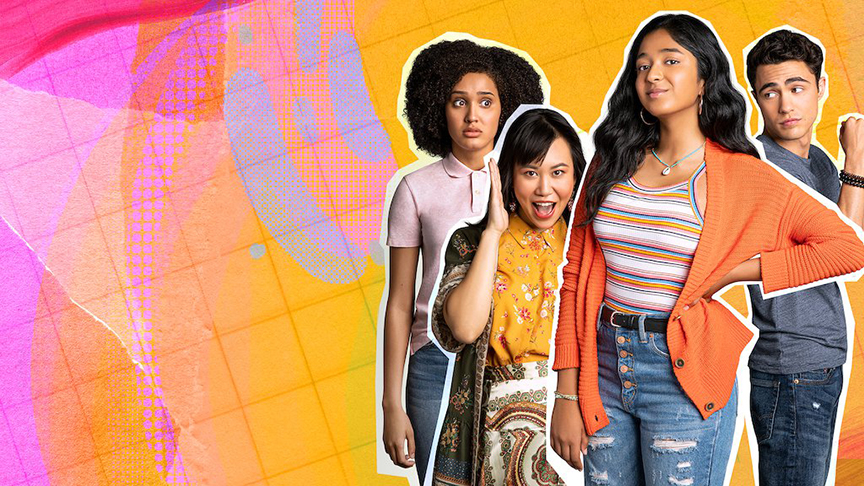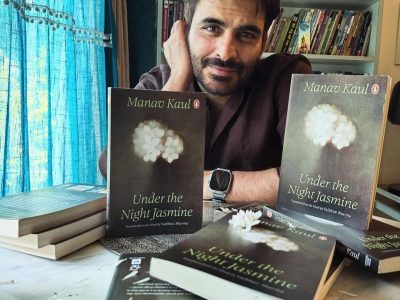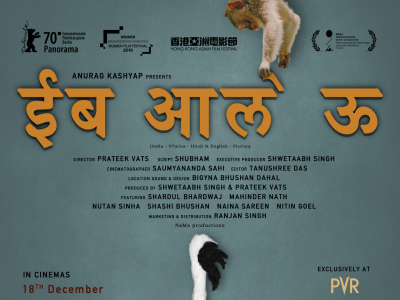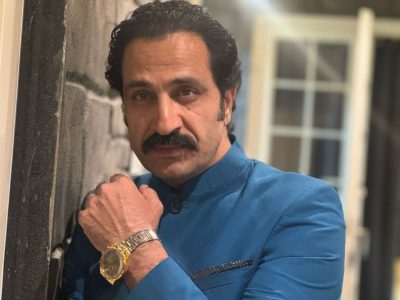Netflix series ‘Never Have I Ever’ gives us a glimpse into the life of an Indian-American teen without putting her on the sidelines or merely using her for comic relief
A 15-year-old is praying to God as her first day of sophomore year at high school is about to begin. She says, “I think we all can agree that last year sucked for a number of reasons. So I thought of a few ways you guys can make it up to me.” And she presents a list to God, which includes an invitation to a party, less hair on the forearm and a boyfriend.
Well, up until now you must be thinking this is a scene from yet another American high school comedy drama. Yes it is, but what sets it apart from the other ones is that its protagonist is Indian. And it is definitely not common to see our actors as leads in American serials, even after Priyanka Chopra in Quantico.
Netflix’s recent series Never Have I Ever has made this uncommon sight a reality. Co-created by Mindy Kaling and Lang Fisher, it is loosely based on the former’s life. Kaling played the character of Kelly Kapoor in the famous American sitcom The Office and later became the first woman of colour to write, star in and create the prime time show The Mindy Project in 2012. The show not only got a wider range of attention, but also brought her global fame.
Never Have I Ever, since its release on 27 April, has gained immense popularity. It took Netflix’s number 1 spot (in the world) several times. “I’m truly in shock. I can’t believe that our show about a complicated little Indian family has been seen by this many people, @loulielang, the entire cast and crew are so grateful to you for making us #1 around the world on @netflix. We love you guys! Thank you!!” Kaling tweeted a few days back.
The series is based on the life of 15-year-old Devi Vishwakumar – played by debutant Maitreyi Ramakrishnan, who managed to impress the audience with her innocence and confidence. The plot revolves around this Indian American teenager living in California who had been through a major trauma – losing her father. Thesensitive topic has been dealt with in a very positive manner.
Devi’s two best friends in the show – Fabiola and Eleanor – belong to different races but not even once does it look like all this diversity was brought in to prove a point. Instead, it comes across as natural. Racism has often been addressed in the show, but with a comic touch. Similarly, various serious issues — how teenagers deal with family problems, their sexuality, loneliness or emotional trauma – have also been addressed.
Though at the outset it might appear that this is just like any other high school drama – where the ‘nerdy’ girl wants to date the high school ‘hottie’, but it’s much more than that. It soon becomes clear Devi uses her crush Paxton as a distraction from the real issues bothering her. And her therapy sessions tell a lot about how she, like any other adamant teenager, is running away from her problems.
As for the representation of Indians or South Asians, this show has sparked several debates. According to some, it perfectly portrays how a first generation American feels and what she goes through. The way Devi tries to ‘fit in’ is evidence of this fact. Apart from this, Devi has been depicted as just another horny teenager who confesses to her therapist “I am ready to bone.” To think of Indian teens as asexual beings, as sex is often considered ‘taboo’ in our society is entirely wrong, and this series breaks this age-old notion as well.
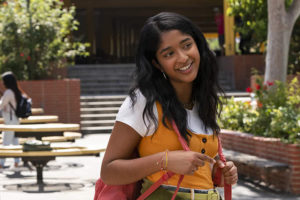
In one episode, Devi terms Ganesh puja as ‘lame fest’, is unhappy when made to wear a saree – all these have been praised by many as the true depiction of any Indian-American teen. Yet in that same episode, we are introduced to her friend Harish, who has come back from college. He explains that he wanted to be in this puja because in college he met people from different backgrounds, who are proud of their heritage, and this made him think: “Why do I think it’s so weird and embarrassing to be Indian?”
In that same episode, we are introduced to Indian ‘aunties’ — something we are all familiar with, no offence! The narrator says: “Aunties are older Indian women who have no blood relationship to you, but are allowed to have opinions about your life and all your shortcomings.”
On the other hand, the show faced criticism for showing how Devi’s cousin Kamala is being ‘forced’ into an arranged marriage. Or giving Devi’s parents Mohan and Nalini a fake accent. Also, some believed it has shown Indians as ‘orthodox’.
Among many who have criticised the way Indians have been represented in the show is actor Lisa Ray. “Is it just me or is #NeverHaveIEver rife with tired ethnic stereotypes and bad Indian accents? I thought we had outgrown all these old immigrant tropes and here we are dropping them into the mainstream. None of my Indian diaspora friends in Canada/US speak/think as portrayed,” she wrote in a tweet.
But again, this was the story of Devi and her life – and would it be fair to say it represents the whole South Asian community?
“I think honestly it’s hard to represent the whole of the South Asian community because it’s so vast. You can’t possibly recognise the entirety of the community, but you can put on a spotlight on as many stories as you possibly can. I am a South Asian woman, and whatever moves I make is representation in itself. There’s no possible way I could possibly represent every single story. What I can do is hopefully make room for others to also break into Hollywood and tell their own stories,” Maitreyi Ramakrishnan said in a recent interview with Observer.com.
Apart from this debate on representation, another fact that made this show stand apart is how people of colour were not sidekicks or comic reliefs only, like it has always been in American shows and films. Rather, here they were the protagonists.
“I think you know many minority groups, people of colour, we’re always used to being the sidekick characters, or the funny, you know, comedic relief with one funny line, which really sucks. But we’ve now been typecast for just that. We’re never the lead anchor of the show, which is really unfortunate because we have a lot to bring to the table, and it’s awesome that Never Have I Ever portrayed this one story based on Mindy and Lang’s life. And I think hopefully that’ll get other productions to realise that they need to also prioritise realistic representation, because it’s so long overdue,” Ramakrishnan said in that same interview.
Kaling herself confessed in various interviews that she felt like an outsider for a long time in Hollywood due to the constant reminders that she is different. In an interview to a news portal, she said she is glad that things are now changing, adding that right representation matters a lot.
All in all, it’s a show which had all the ‘feel good’ qualities, and takes you back to your teens — whether you are an Indian, NRI or non-Indian!

